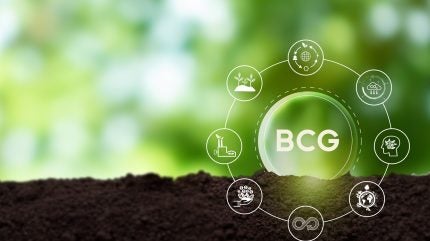
The Biodegradable Products Institute (BPI) has announced a combined Commercial & Home Compostable Certification programme.
Revealed at the three-day BPI Summit 2025 in Atlanta, in the US state of Georgia, from 16 September to 18 September, which brought together leaders from across the circular bioeconomy, the new programme is intended to help packagers and consumers divert more food scraps from landfills.

Discover B2B Marketing That Performs
Combine business intelligence and editorial excellence to reach engaged professionals across 36 leading media platforms.
BPI says the certification provides a “scientifically rigorous” framework to identify products that safely decompose in home compost piles, enabling more households to take part in the circular bioeconomy.
The programme is now due to launch and BPI will accept applications from December 2025.
Products seeking the new certification must fully break down in the cooler conditions typical of backyard composting, in addition to meeting existing certification requirements.
Restrictions on components such as per and polyfluoroalkyl substances (PFAS), carcinogens, endocrine disruptors and heavy metals are designed to ensure that compost containing certified-compostable packaging meets high standards.

US Tariffs are shifting - will you react or anticipate?
Don’t let policy changes catch you off guard. Stay proactive with real-time data and expert analysis.
By GlobalDataThe home composting thresholds were confirmed through extensive field testing across North American climates and composting practices, and the work identified the management practices needed to set realistic performance expectations.
BPI will shortly release educational resources to help people successfully compost certified products at home.
The announcement comes amid a broader waste and emissions context.
BPI highlighted that food scraps remain the largest material sent to landfills, which are the third-largest source of methane in the US. Methane is a greenhouse gas up to 80 times more potent than carbon dioxide.
Studies indicate that certified compostable packaging boosts food scrap diversion and helps reduce compost contamination, plastic pollution and methane emissions. Composting also offers pathways for carbon sequestration and healthier soils to support sustainable agriculture and combat desertification.
Linking the Commercial and Home Compostable Certifications allows professional composters to trust that products will perform in their systems and gives consumers confidence in sustainable packaging claims, paired with clear end-of-life instructions.
Home compostability enables brands to make validated packaging claims without facing accusations tied to terms often linked to “greenwashing,” a deceptive marketing practice in which companies make false or misleading claims to appear more environmentally friendly than they actually are.
BPI currently certifies more than 51,000 products as commercially compostable, including food scrap collection bags, takeout containers and consumer food packaging.
BPI certification director Margaret Eldridge stated: “This certification gives both product manufacturers and consumers the same scientific rigour as our commercial programme, just adapted for backyards — expanding the impact of sustainable packaging to millions more households.”





